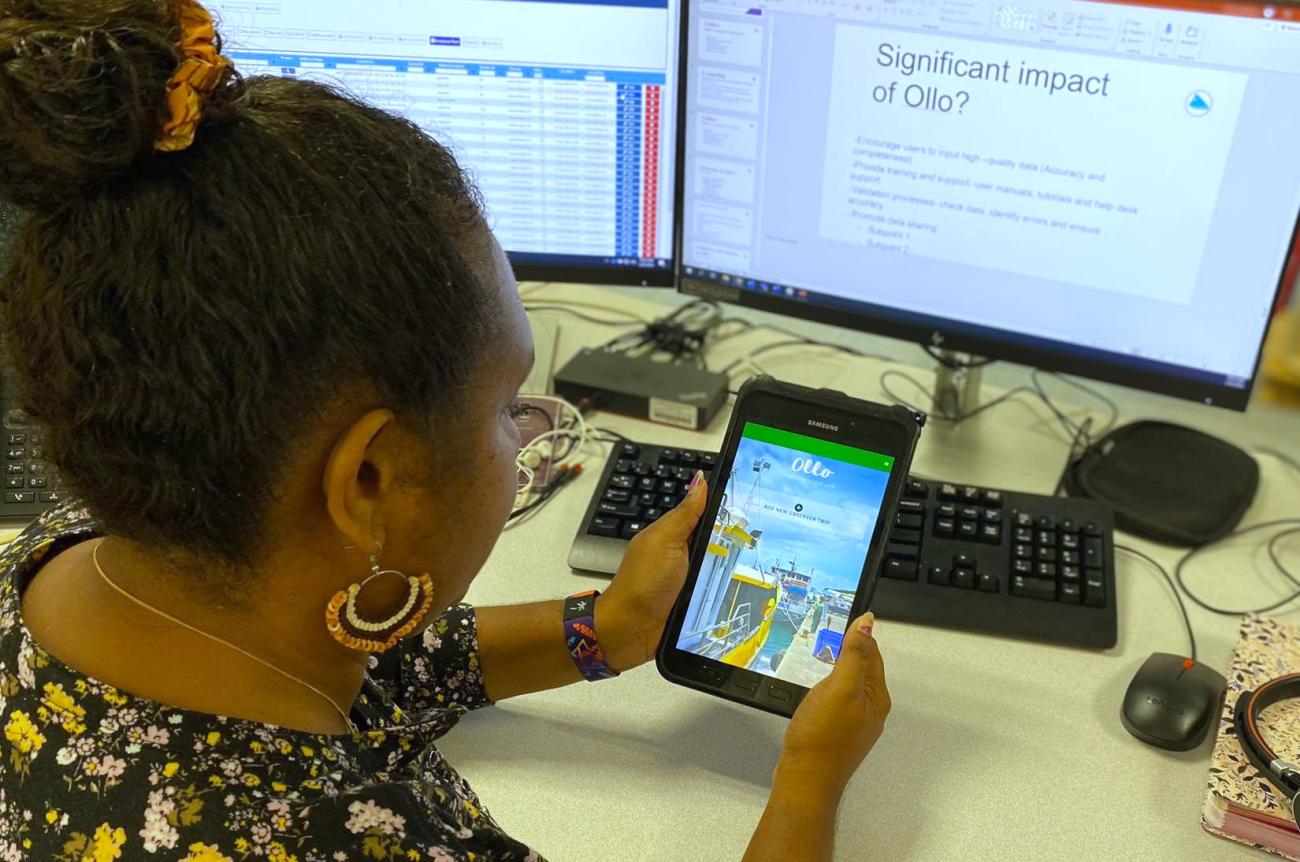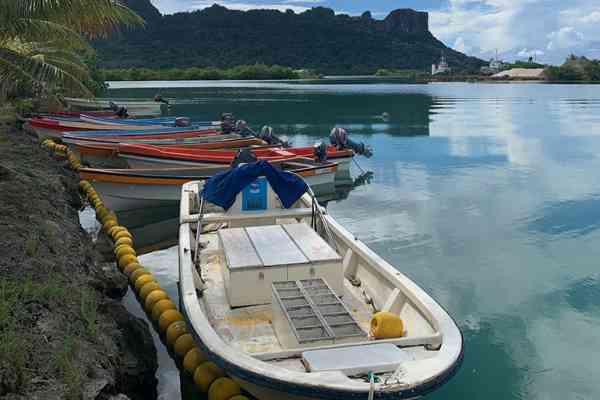Fisheries in the Pacific Islands are getting a tech boost!
To help ensure the tuna populations stay healthy, the Pacific region has been investing in technology and research for many years, and the Pacific Islands Countries and Territories (PICTs) continue to benefit from technological innovations including improving the quality of Fisheries catch data and obtaining it in a timely manner - both crucial requirements.
Starting in 2016, the Pacific Community (SPC) and its members collaborated to develop various mobile-friendly applications, including OLLO - the 'Offline LongLine Observer' app. The app enables fisheries observers to monitor vessels’ catch and help support sustainable fishing practices.
So, what's OLLO all about?
Basically, OLLO is an app for fisheries observers on board vessels. Onboard observers are like fish forensic experts, who get on the boats and record every fish that is caught, how big it was, where it was caught, and what happened to it. This helps create data about the types and sizes of fish caught, which is used by the countries to make decisions about managing fishing stocks. Observers collect a lot of data during each fishing trip, which can last anywhere from 10 to 60 days. With OLLO, they can quickly record all the information and get back to observing the fishing. It's like a fishy version of "CSI" but with perhaps better technology. These data are then uploaded to a regional oceanic fisheries database, called TUFMAN2, when the observer returns to port.
How it all started
OLLO was launched in 2020 with early versions tested by the New Caledonia Observer Programme (NCOB). The core work for an observer is to record catch data for each tuna caught (landed or discarded), and they use a form called the LL-4 to do this. This form has been developed over the decades and is designed so that the observer can efficiently record high quality catch data. While specific attention was given when developing the LL-4 form format in OLLO, the feedback from the first trial version was simple: “This will never work”. Feedback from that observer trial asked for specific improvements to the ease and speed of use, which SPC developers enthusiastically responded to: "The LL-4 is now displayed in a tabular format where data fields can be completed rapidly and not necessarily in sequence, a similar feel to if you were using the paper form."
OLLO also improves data quality by using data checking processes built into the app during data entry, and streamlines the data transmission process; compare the 38 days lead time for paper forms with 6 days for OLLO!
The rise of OLLO….
Rolling out OLLO hasn't been straightforward. With the pandemic going on, training was run online, always a challenge with variable internet and time lags! However, it's now been used by 23 brave observers from three different national observer programs on 61 vessels, racking up almost 3000 days at sea; between 2021 and 2022, 38% of longline observers used OLLO to record their data. The New Caledonia Observer Programme has now completely ditched paper forms and gone all-in on OLLO. And if that wasn't impressive enough, French Polynesia has hopped on board too. But watch out, Tonga is hot on their heels! Meanwhile, the Pacific Community is ready and willing to help other member countries who want to use this cutting edge app.
Overall, OLLO is a game-changer for the Pacific tuna longline fishery. The app allows for more efficient monitoring and improved data quality, which is critical for informing the sustainability of the world biggest tuna fishery.
It's heartening to see the region embrace technology in this way, and we can't wait to see what other innovations come out of this effort. Cheers to progress!

